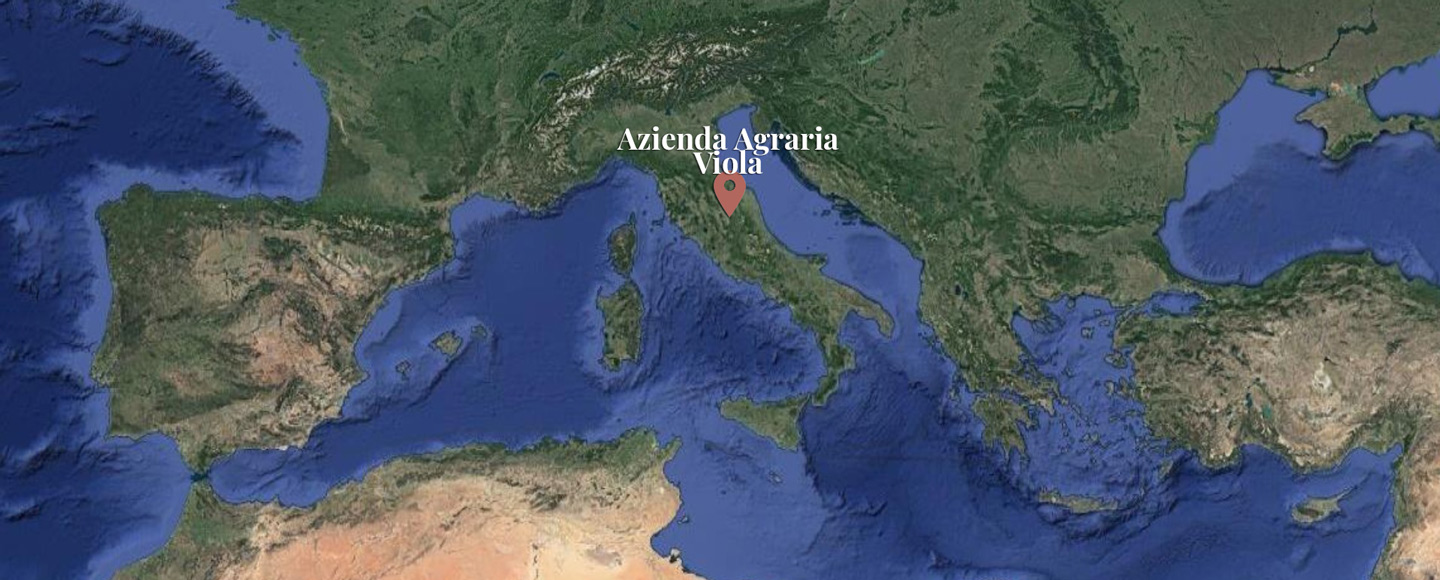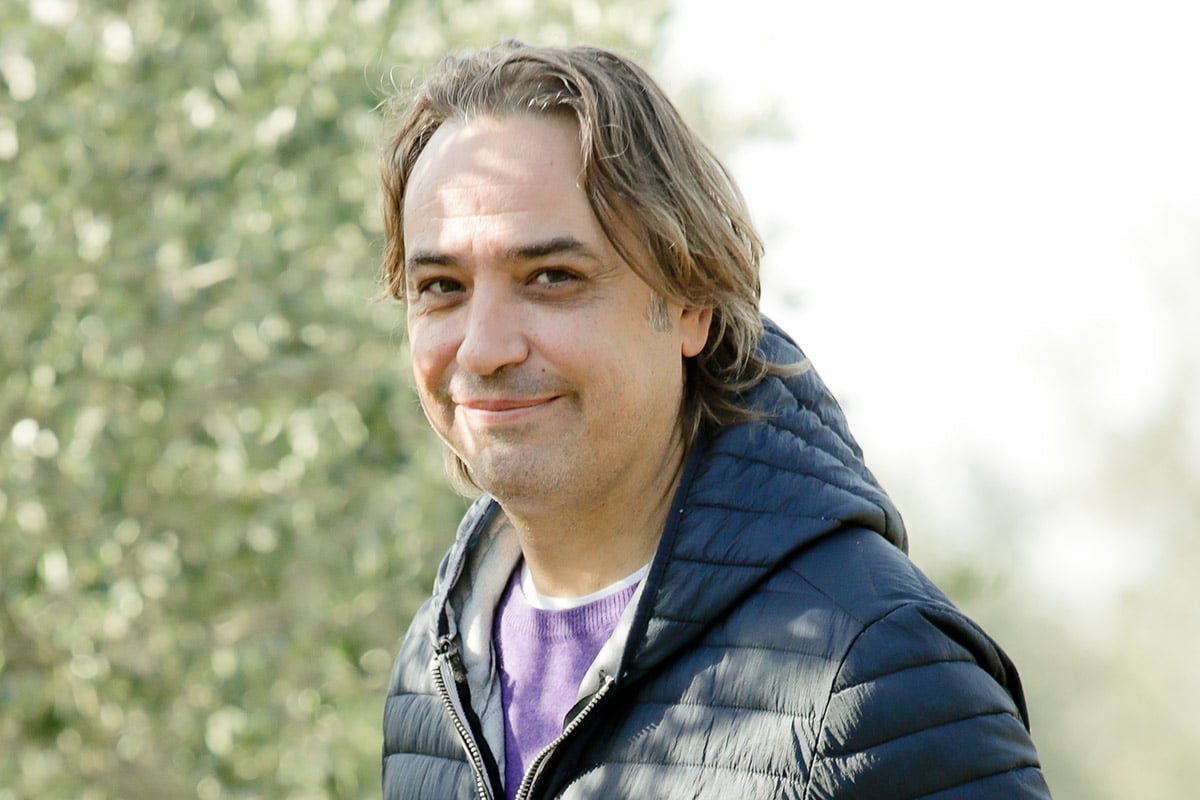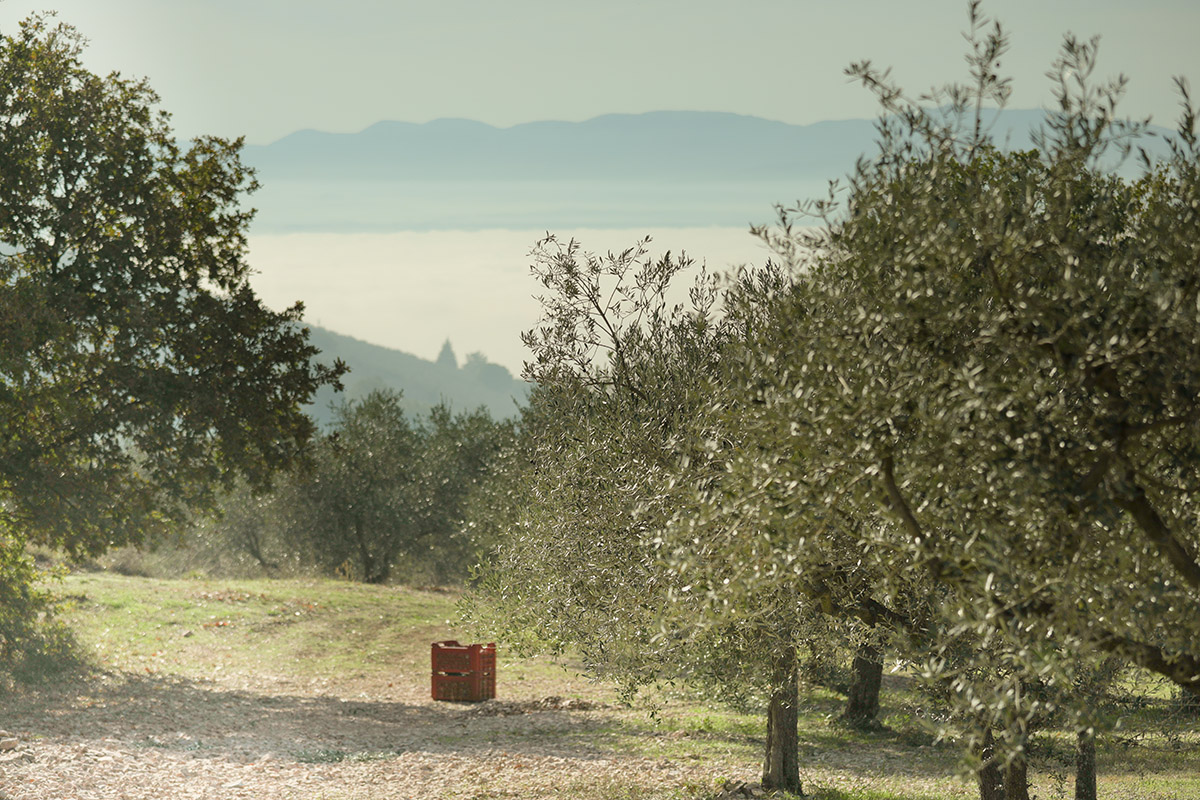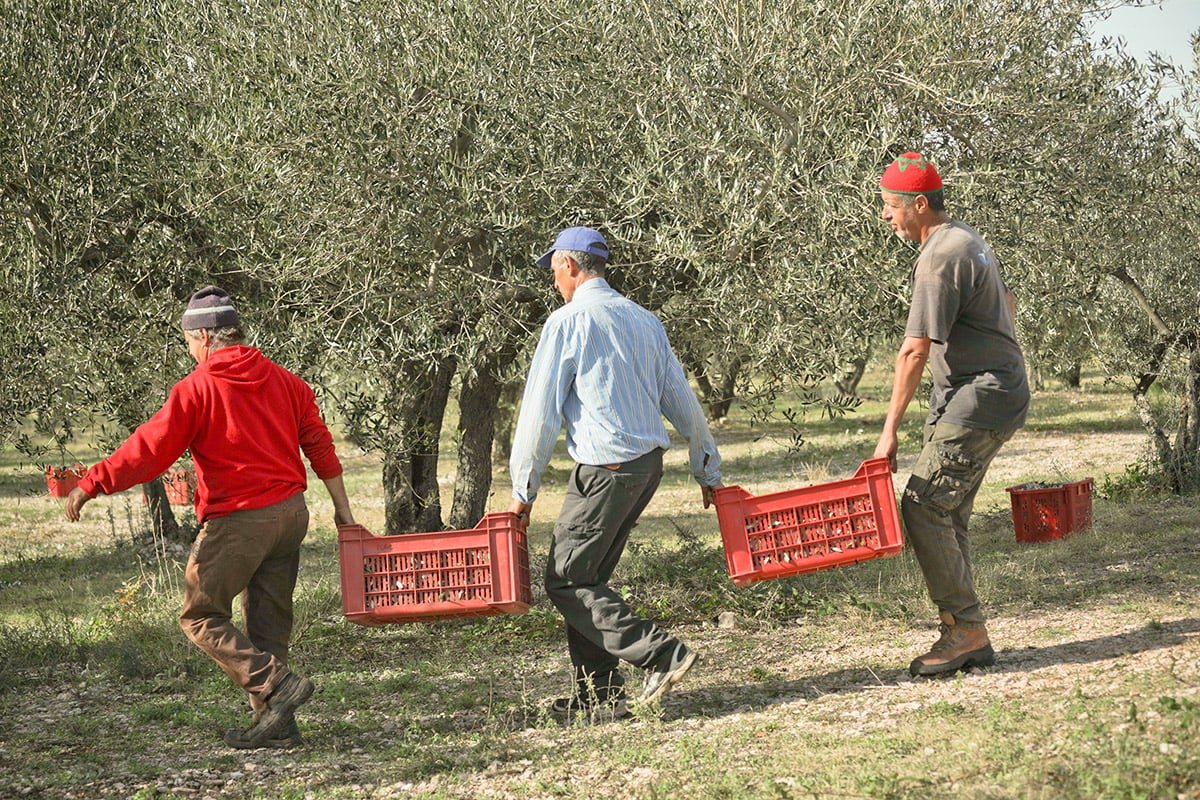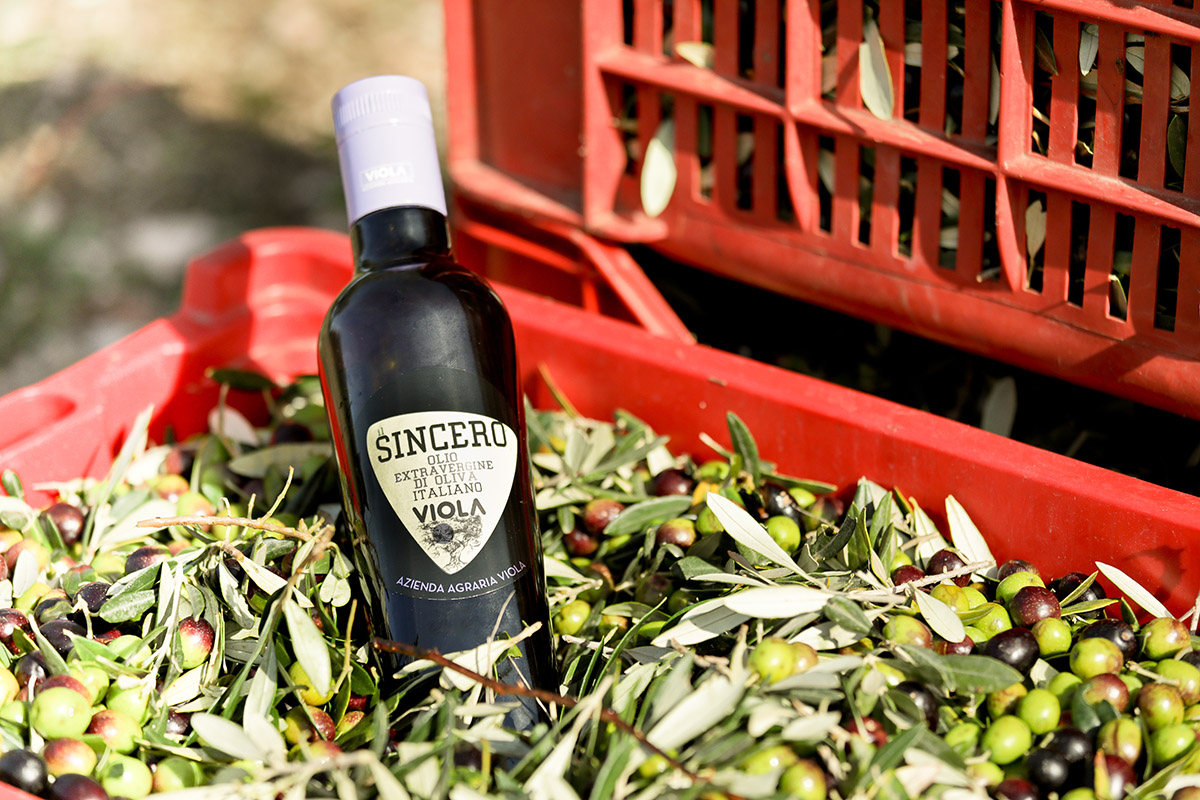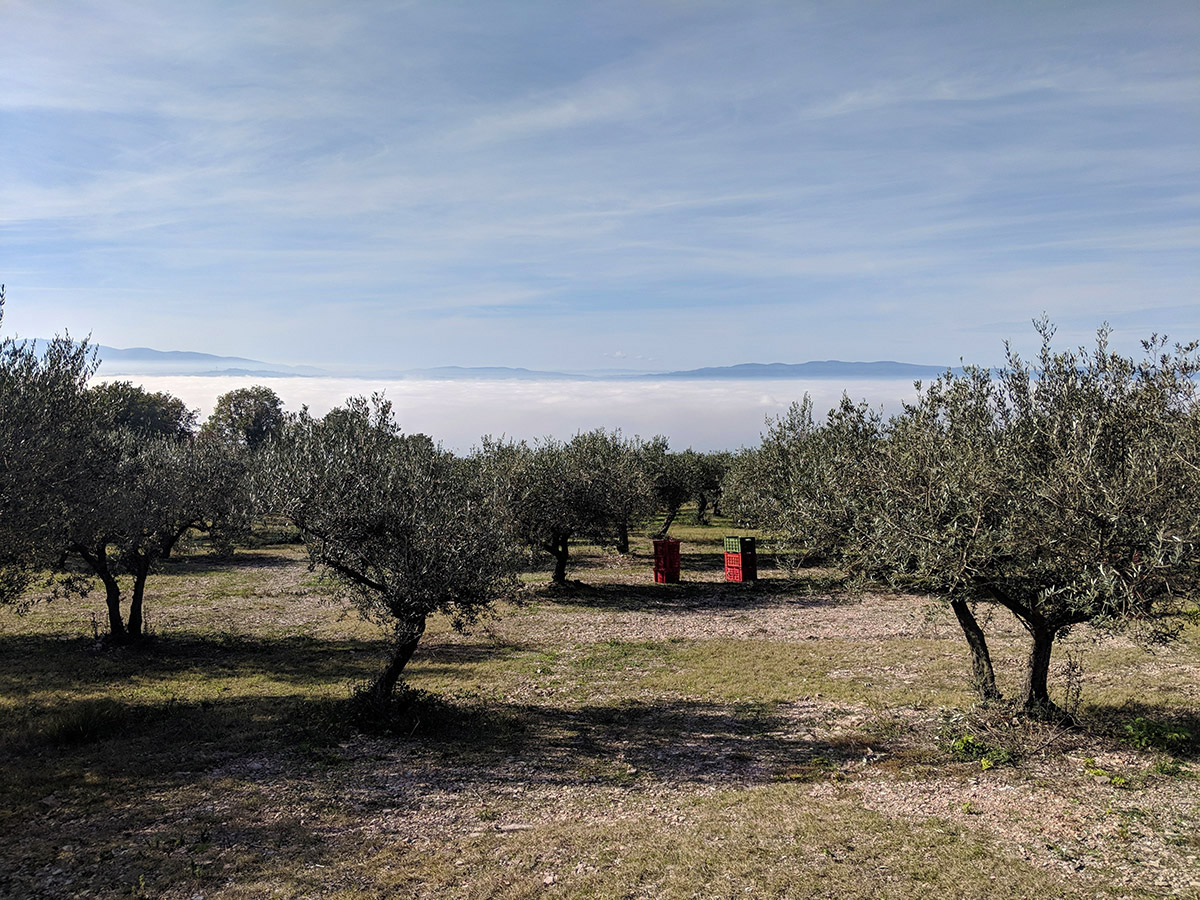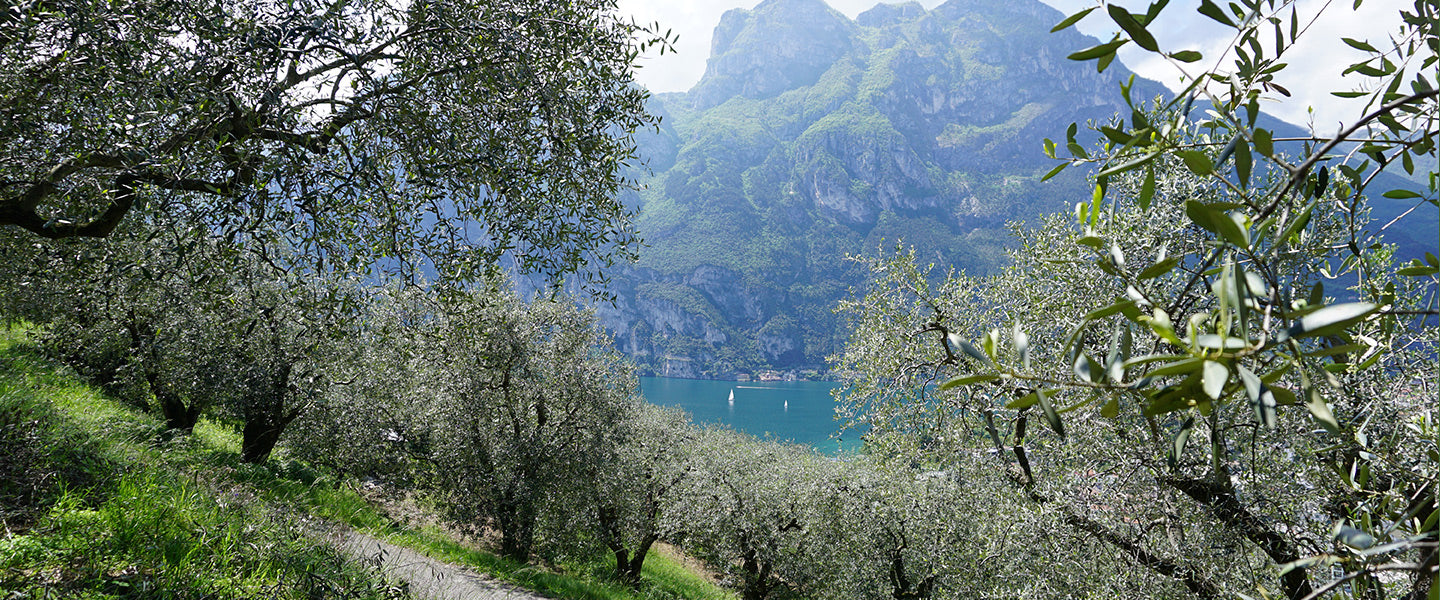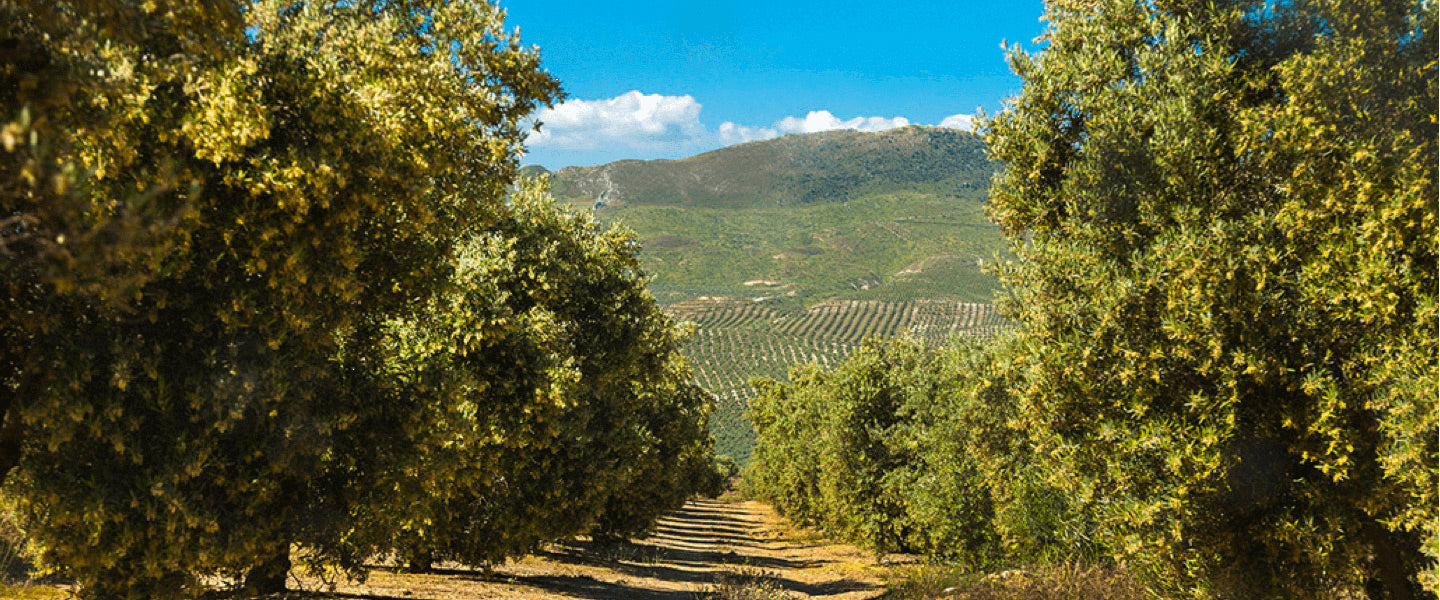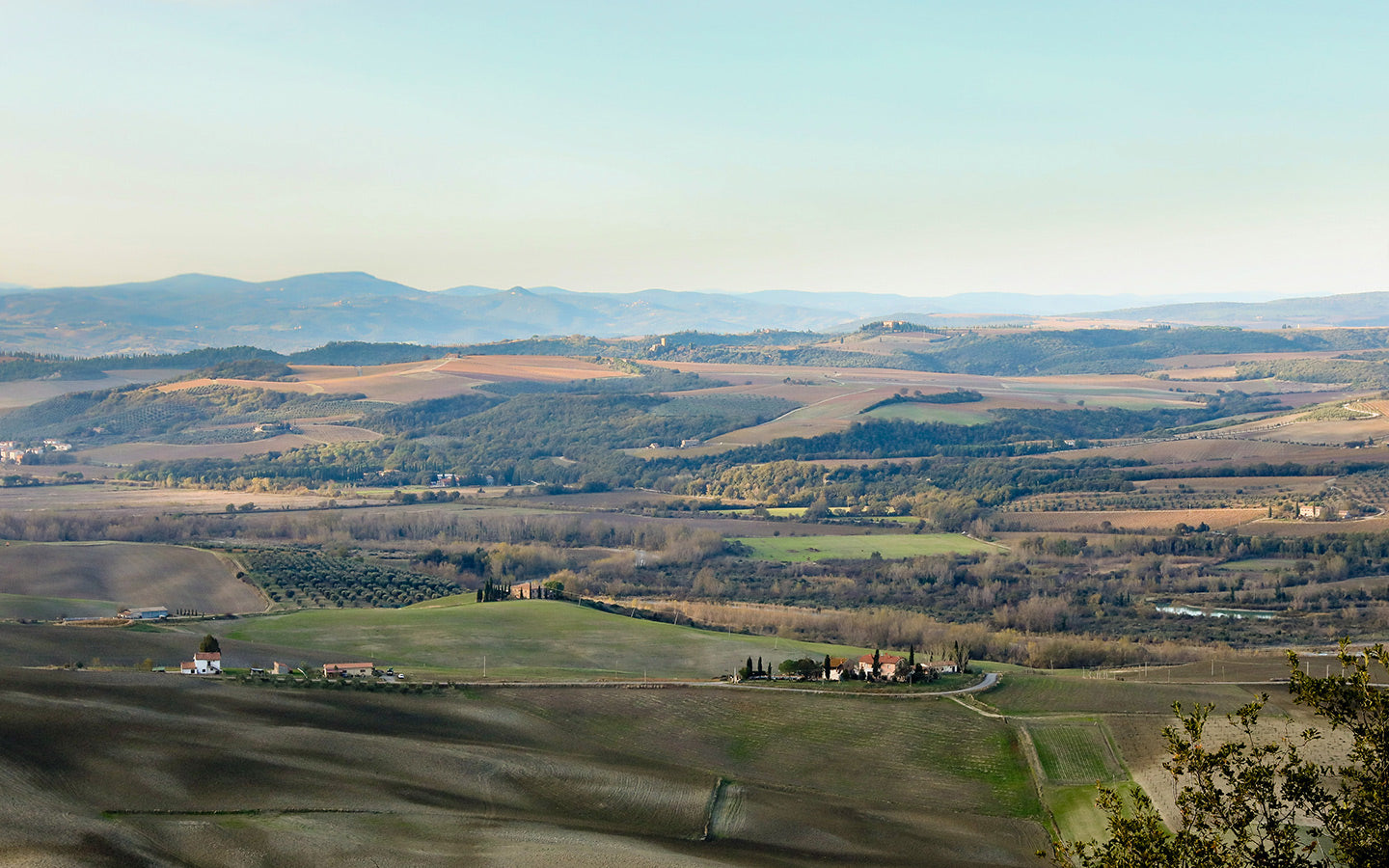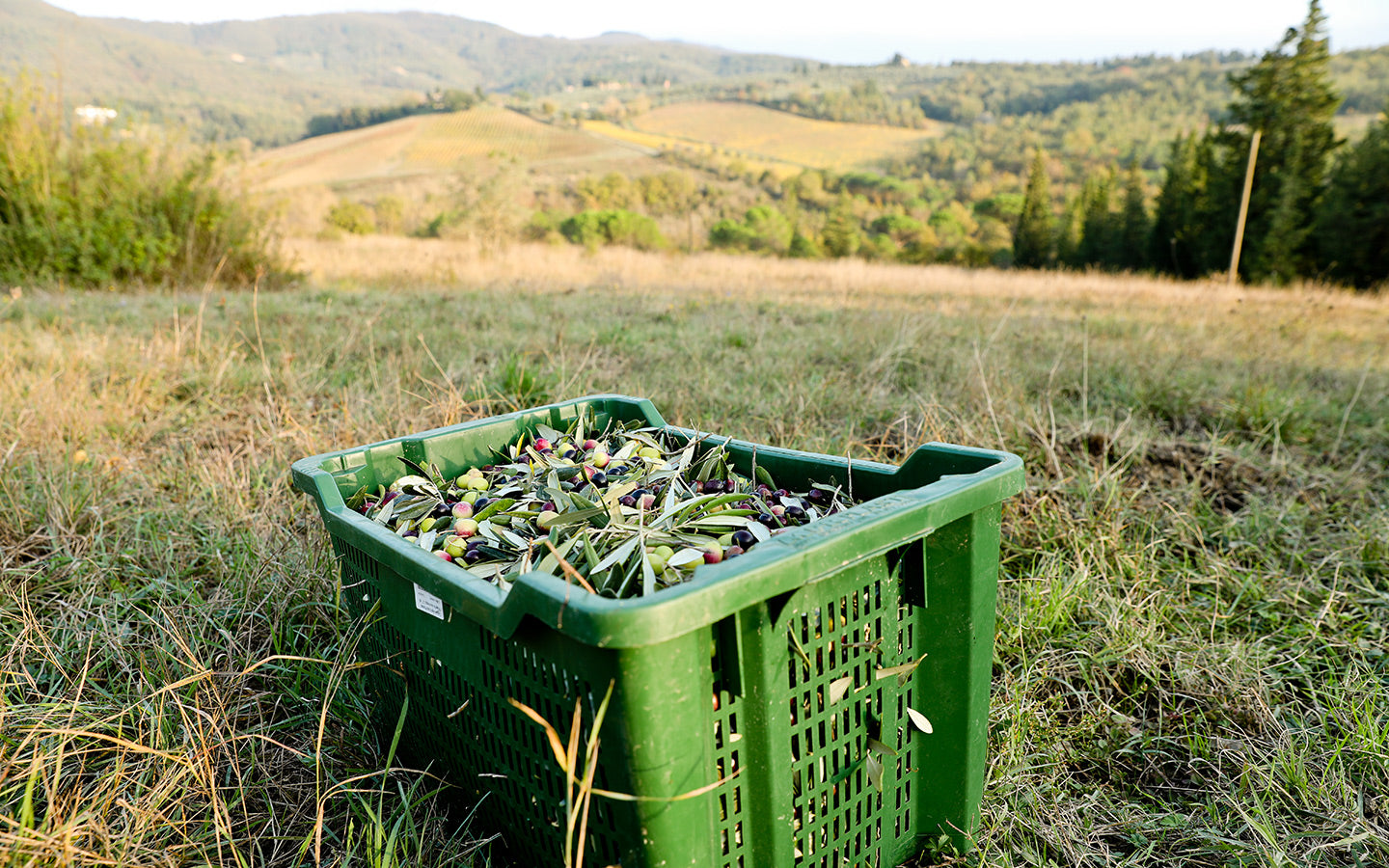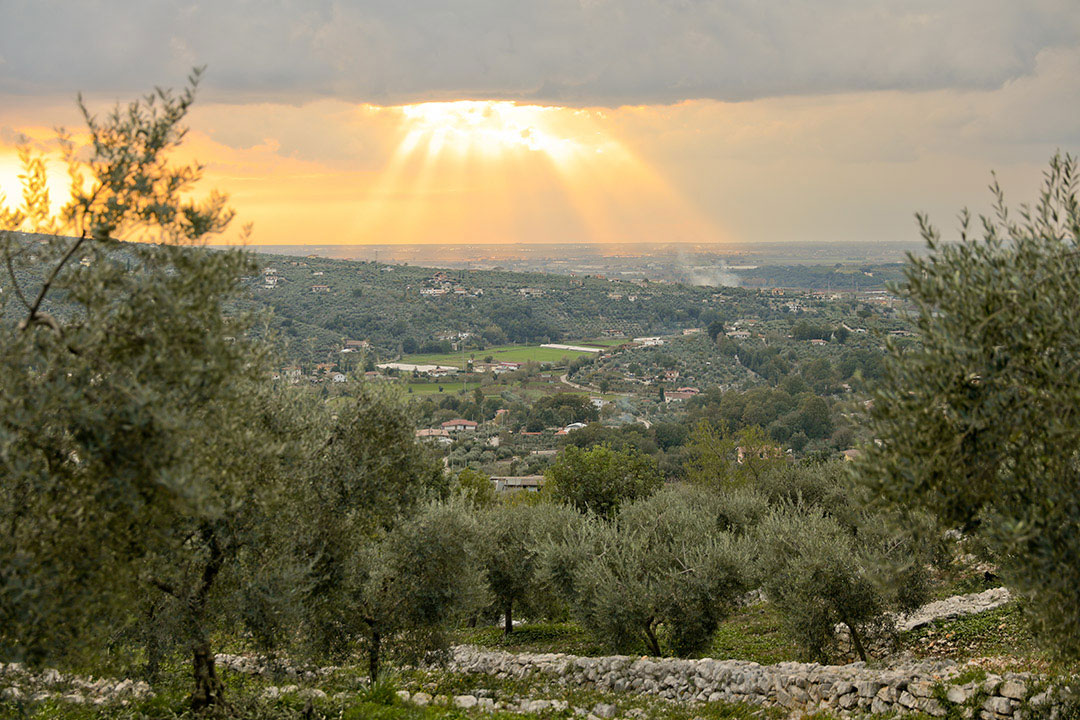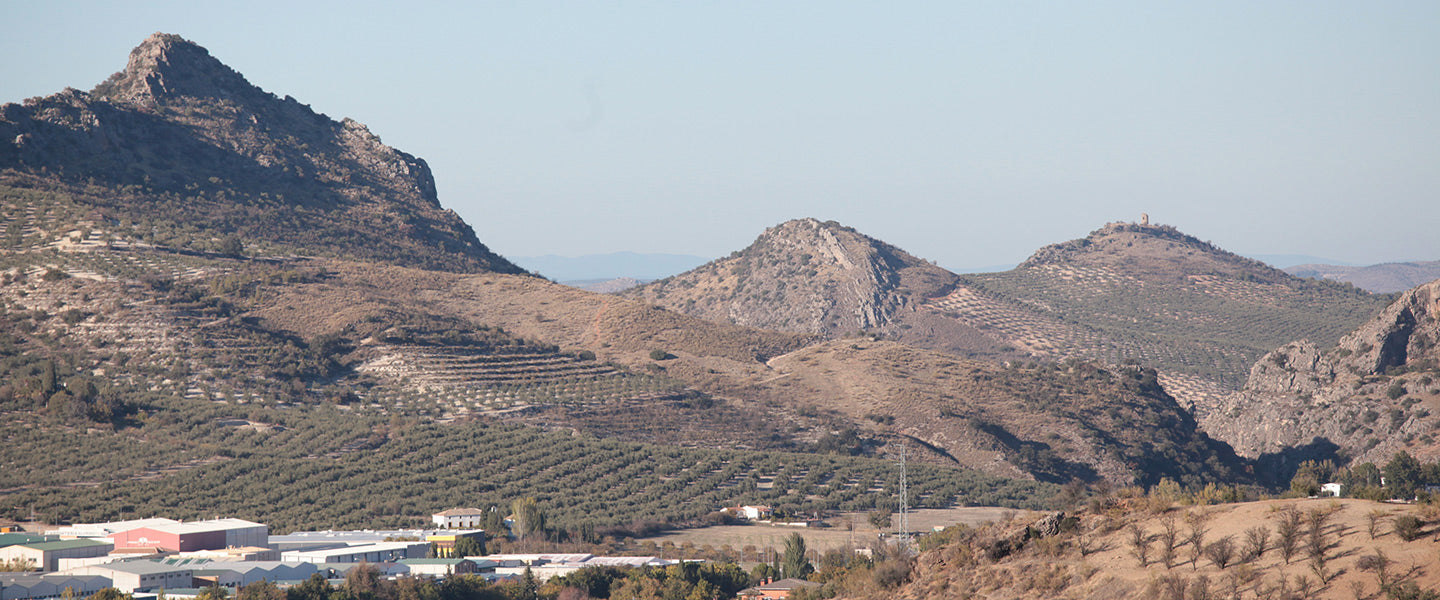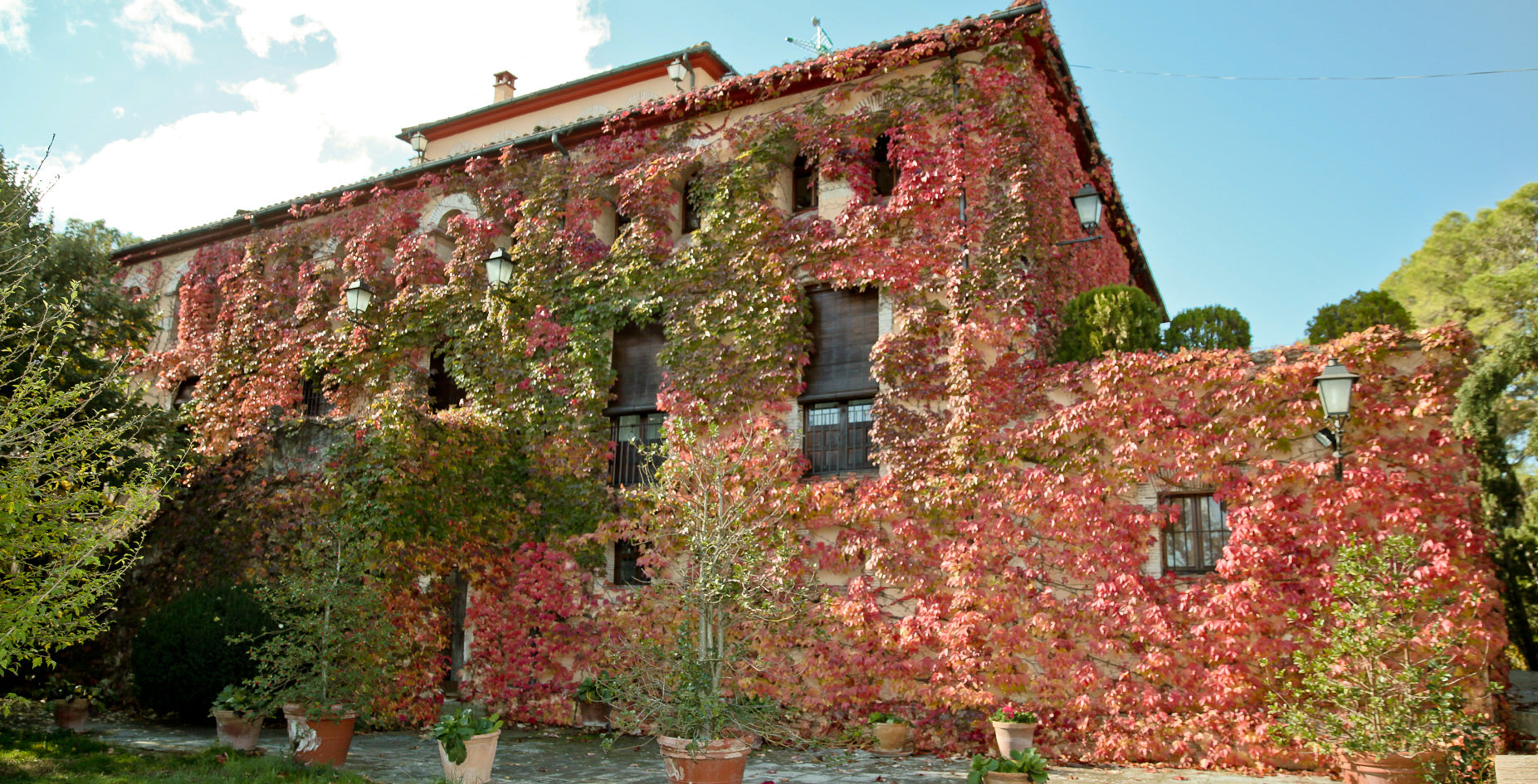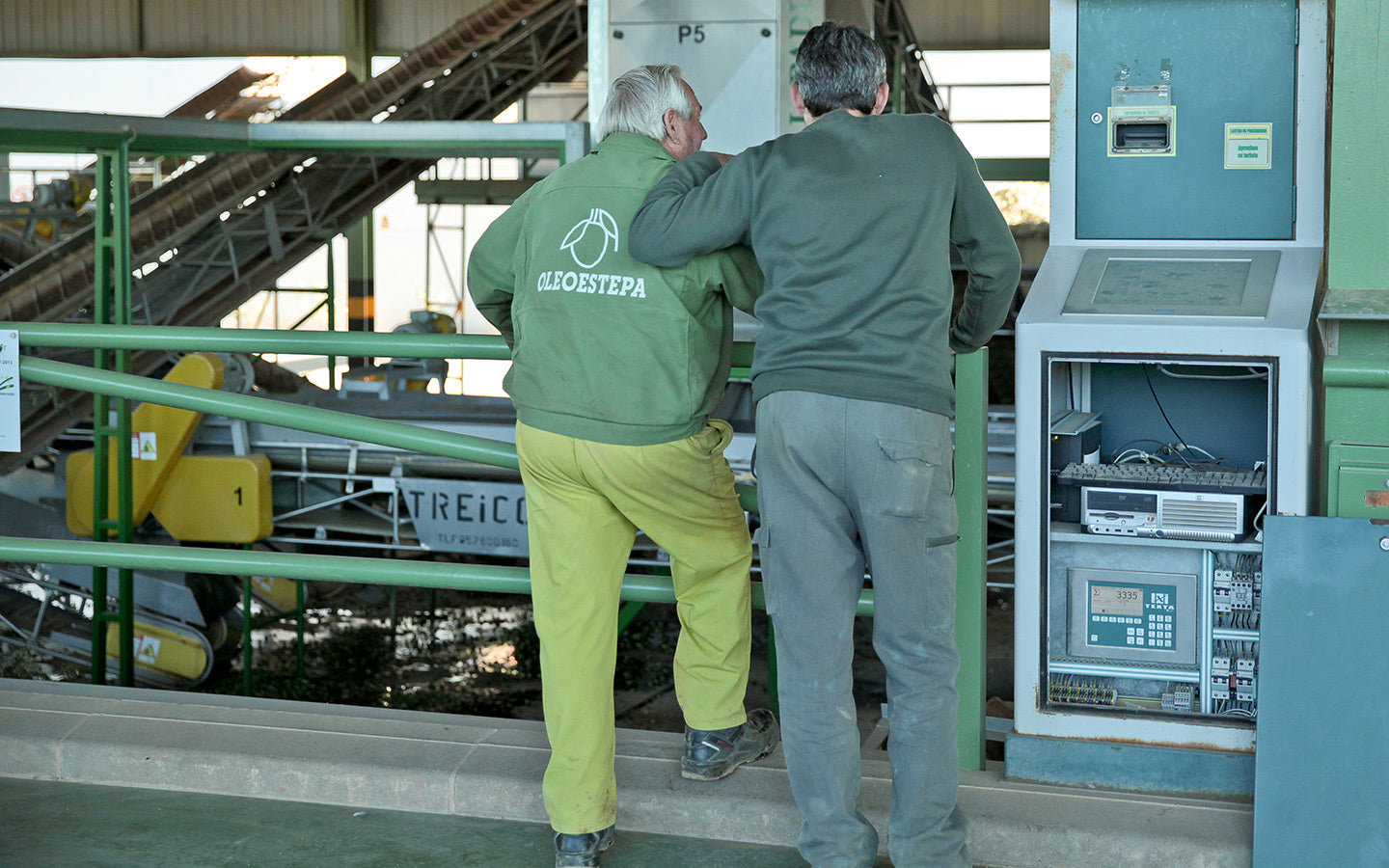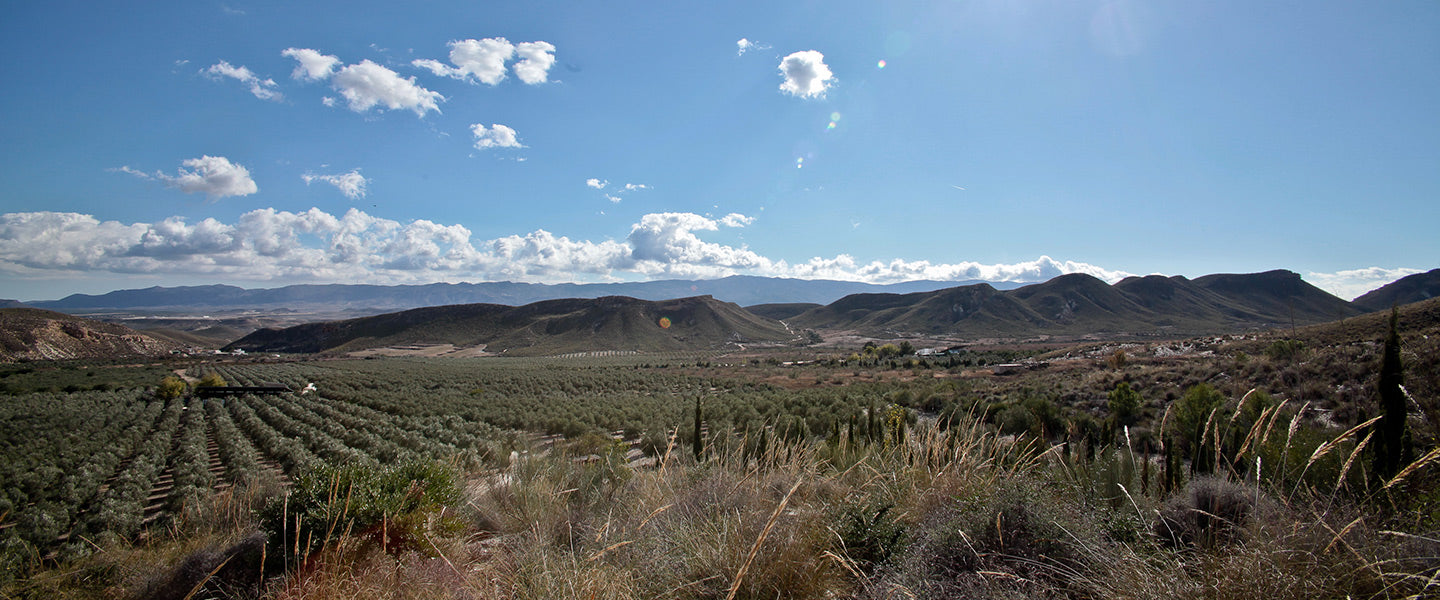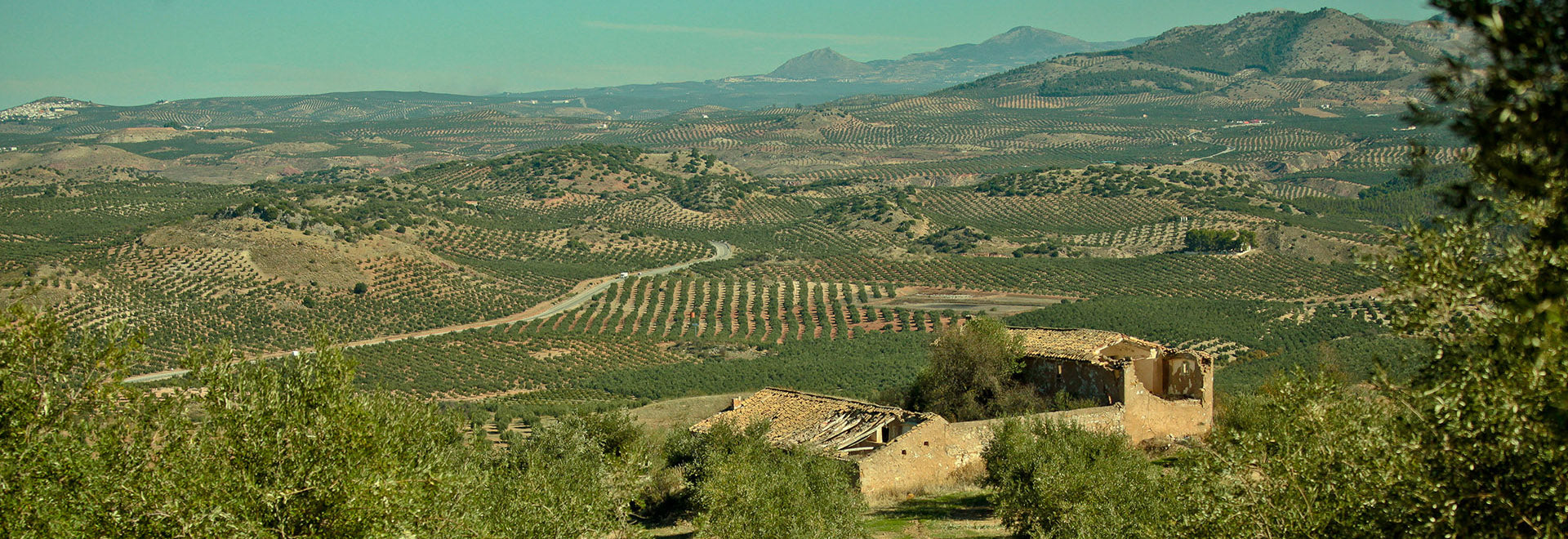Viola
Posted by Olive Oil Lovers on
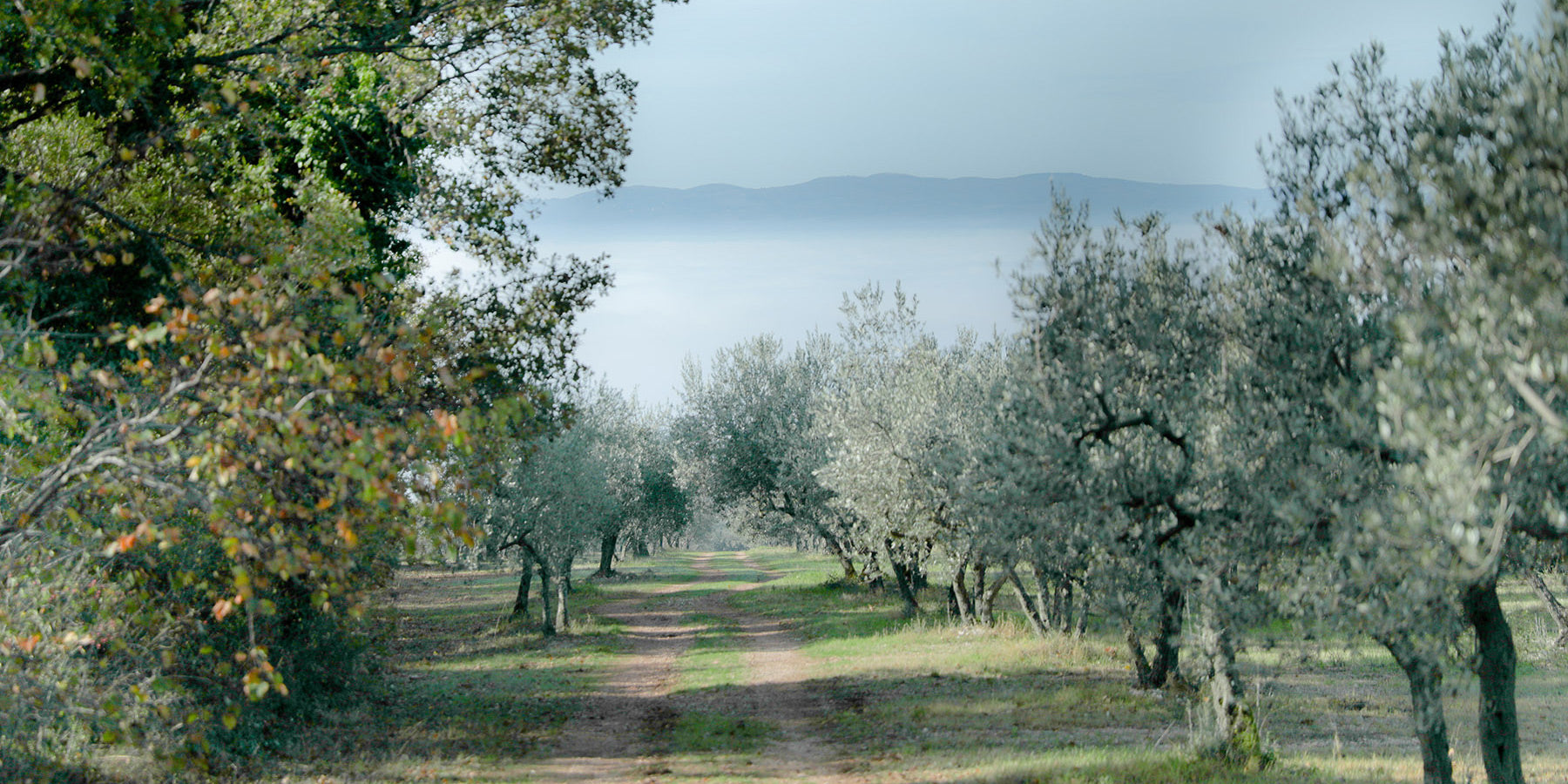
Marco Viola considers himself a farmer before anything else, and trusts that "all we give to nature will be given back to us as a precious gift."
When we asked Marco Viola, olive farmer and master miller at Azienda Agricola Viola, to describe the harvest season in one word, he responded, "Rebirth." This sentiment should not be surprising from someone who has seen olive trees flower and grow heavy with fruit every year he can remember. In many ways all of us are products of our place in the world. We become echoes of the place and people that created us. The same can be said of the land, as its character also reflects its history. Each year, as the Earth traces its path around the Sun to initiate a cycle of rebirth, new mysteries await. Yet how Marco Viola would live his life never seemed much in doubt.
Viola's olive trees grow in the stony hills above Sant'Eraclio di Foligno, a small town halfway between Assisi and Spoleto in Perugia province, in the Umbria region of central Italy. The city of Foligno has long been the meeting point of major road networks connecting it to Southern and Northern Italy and the Adriatic Sea. Any land like this has seen much history, been trampled by many feet, seen major battles and endless minor squabbles. This area may not be too different from other cities across Europe, or across the world, that have witnessed travelers throughout recorded time. The land farmed here has been farmed for ages. It has been worked, and grown rocky. The people who lived here have been farmers, people who lived by the grace of the land. They found that the land suited them, or perhaps they felt they didn't belong anywhere else. All across Umbria the same olive varieties thrive: Frantoio, Leccino, Moraiolo. These olive trees also belong here. Marco Viola belongs here. Some people are meant to travel, to flow through many crossroads. Others have no choice: they grow into a family business, and live in a place because they work in a place. Some yearn to escape that life. Marco Viola grew up in the olive groves of his family, and one day understood he wanted no other life.
"I can't remember when I first felt attracted to this job but I instinctively chose it."

With their deep ties to Roman history, the Umbrian people throw celebrations throughout the year to show their reverence for their region’s past. The events include the "Calendimaggio of Assisi," a spring festival with performances in medieval costumes, and "Giostra della Quintana," a famous jousting tournament in Foligno that the locals revived in 1946. During the "Market of the Gaite," in the small town of Bevagna, just east of Sant'Eraclio, inhabitants spend 10 days reconstructing daily life of the late Middle Ages in great detail.
This fascination with the past extends to the area's farmers, who in recent years have brought forgotten indigenous food crops back into circulation. Foligno has excellent viticulture, and in the last 30 years local winemakers began producing a DOC wine from a nearly extinct indigenous grape called Sagrantino. Regional farmers have also rediscovered an ancient Etruscan bean known as Fagiolina del Trasimeno, a Slow Food Presidia product. Other legumes recently revived include Cicerchia, Fava Cottora, and the Roveja Pea, the last of which is among the fifteen different organic legume and cereal products Marco Viola grows on his farmland. Of course the olive tree is among the most ancient agricultural products of the greater Mediterranean region, and Marco plans to bring additional indigenous olive cultivars to his groves in the near future.

This rediscovery of crops in Umbria may be as much about the ancient foods as it is about the farmers' connection to the their specific region. Marco Viola says he is proud to be a farmer, and that the local ecosystem inspires him to protect the ancient traditions that preserve the land. On his company's website he discusses the ethical standards that he expects both his employees and business partners to uphold, perhaps because he believes so earnestly in his unwritten contract with both the land and the clientele he serves. When he mentions the many awards his oils have won, he does so only in the context that the opinions of his customers are all that matter. While he incorporates modern science in both his farming and oil production, traditional techniques are fundamental. He chooses to conduct organic farming practices, not because he cares about his public image, but because doing otherwise would be a violation of his identity. The quality of his oil did not arrive by chance, it is the result of the indigenous trees growing in the rocky soil, and "simple actions that show our respect."
It can be easy to romanticize the life of a farmer, but when the farmer shows such pure vision, the romanticism feels justified; there are certain fundamental truths that sublimate everything. Recalling the cheerful voices and songs of the harvesters from his youth, Marco shows his understanding that, "all we give to nature will be given back to us as a precious gift."
"My choices have always been guided by a strong sense of admiration for those who have made a lot of sacrifices to grow olives and have devoted themselves fully to farming."
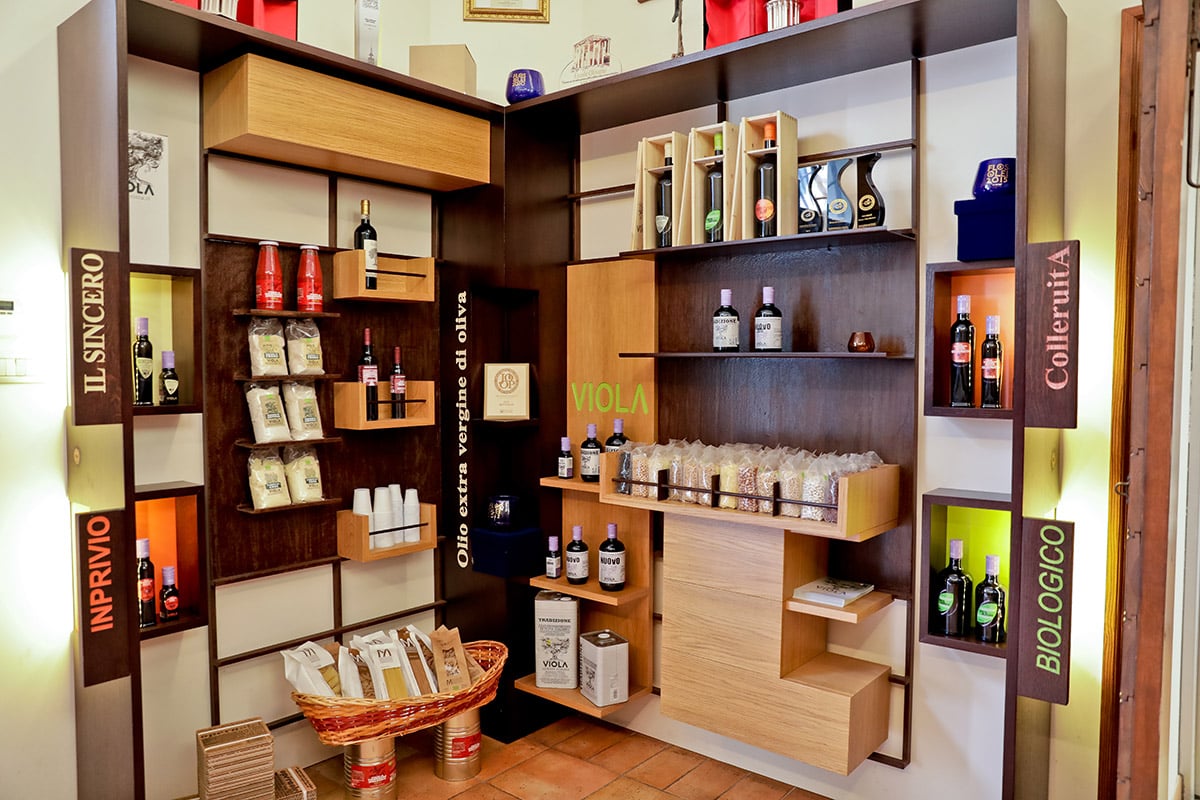
The Estate
The Viola farm and mill does not conduct any agrotourism, though the mill does have a retail shop where oils and other food products may be purchased. For those who plan to conduct business with them or patronize the shop, the company may be able to negotiate with other local agrotourism operations to arrange the best rate for visitors to the area.
To an American who has never tried quality extra virgin olive oil before, Marco Viola notes its healthy benefits, that as an unsaturated fat it can lower cholesterol, despite the confusion that misinformation campaigns try to sow. He recommends buyers check out the producer, the origin, and the harvest time or expiration date. Finally, he insists that “the pungent and bitter taste notes you may find in an extra virgin olive oil are essential characteristics if well balanced. The aroma could recall the scent of tomatoes, artichokes, cut grass, sage, apple, basil.” Clear communication with the customer is an essential part of his business, so Marco always wants to ensure the consumer can verify the accuracy of the information provided on the quality and nutritional characteristics of his extra virgin olive oils.
I love my land deeply because from it I receive all that I know and possess. The greatest gift my family has passed down to me is the passion I put in the cultivation of the olive trees that grow on the hills near my village and that have for centuries clung to the clefts in the rock.
